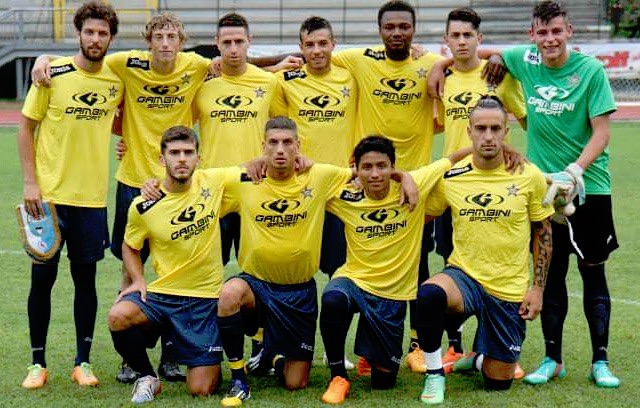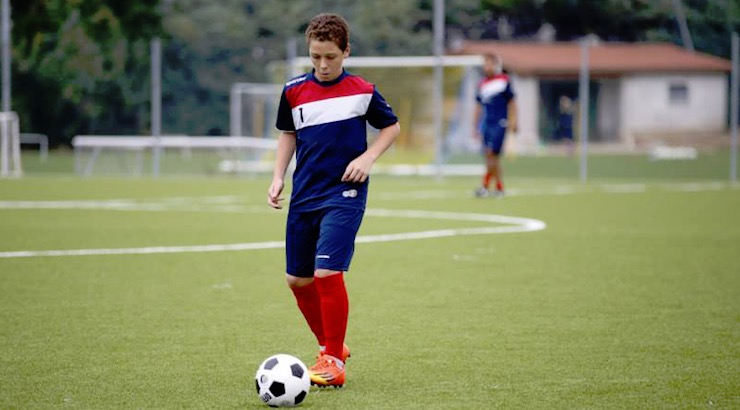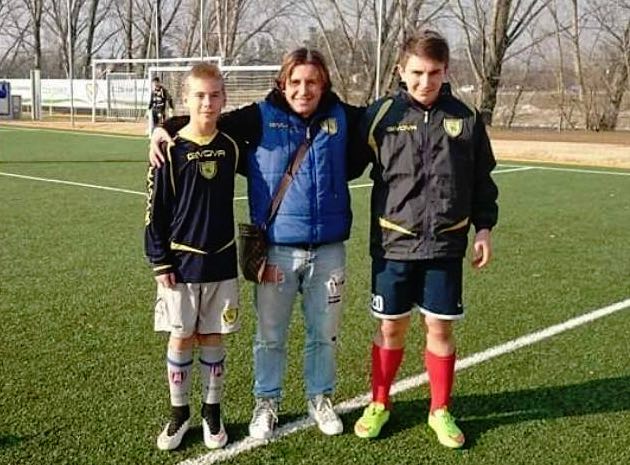Written with Mark Walker, Press Association Sport
Is youth player development better in Europe? Many people thinks so. The money in European football continues to leave Major League Soccer in its wake but getting a piece of the action for American youngsters can feel like a distant dream.
Enough of them start on the right path, but for most young soccer players — the story is the same.
Youth soccer players all across the world play and learn the rules, develop skills, play at higher levels and then, when they become teenagers, they stop playing and forget about the game altogether.
Nobody knows how many potential world stars are lost but a Texas-based organization is attempting to revolutionize the way all that talent is harvested, which has so far proved a big problem for American soccer.
Getting into Europe is still the way to go if a talented young American wants to make it in the professional game, but the Atlantic divide is just one of several major obstacles.
Revolution Global Soccer, the brainchild of its president Jason Mrochek, was formed in 2011 and is one of the many companies that has set about overcoming these hurdles for American youth soccer players. Revolution Global Soccer’s tagline says that it is “Revolutionizing Soccer.”
“Our focus is to bring top American players to Europe to be scouted and try-out with clubs rather than bring the clubs to the United States on a regular basis,” says Mrochek.
It’s much better for the clubs to see the players train alongside the top youth in Europe rather than in the lower-level training and playing environments in the US.
“We want to continue to expose more American players to these opportunities and give them the chance to showcase their talents where it counts,” says Mrochek.
Mrochek, a 40-year-old father of three, became frustrated at the lack of opportunities available to his footballing son Trevor Mrochek when he was 10. Trevor, now 14 and a central midfielder, has since had trials with Vicenza, Fulham, Newcastle United, Manchester City, Genoa and FC Utrecht and was recently asked to join Spanish second division club Hercules.
“But we still face some of the same challenges as other non-EU passport holders in that we still have to tackle the visa issue,” says Mrochek, who shares the same dilemma common to most parents of talented athletes.

“In our case, it’s a bit more complicated because Trevor has two brothers who are not aspiring soccer players, so we try not to sacrifice their passions and aspirations for the sake of their brother. It’s quite the juggling act.”
Nevertheless, Mrochek was determined to find a way and make the process easier for America’s top young players, so established RGS with the sole aim of providing a “development pathway”.
“The concept was formed when Trevor began getting interest from European scouts based on video footage that had been taken of him,” explains Mrochek. “Without this video ending up in the right hands, there was very little chance he would ever get to trial with clubs in Europe.
“The scouting system in the US still misses many of our talented players and the overall level of player development in America does not justify the cost for European clubs to send scouts here on a regular basis. So there was a huge opportunity to bridge the gap between top US players and legitimate training and trialing opportunities in Europe.
“We began to fill that gap by nurturing the relationships with our growing professional network in Europe and ultimately bringing a scout to the US to hold an identification camp in Frankfort, Kentucky.”
RGS’s network in Europe is extensive with coaching contacts at around 100 leading clubs, including Real Madrid, Barcelona, Juventus, Roma and Paris St Germain. It extends to Premier League giants Manchester United, Manchester City and Chelsea, but British passport regulations are currently a stumbling block.
“Unless we develop a pool of players with European Union passports, we are not likely to have an academy started in the UK soon, but we never close doors prematurely,” Mrochek says.
Former Genoa and Czech Republic international Tomas Skuhravy, ex-Standard Liege head coach Ivan Vukomanovic and Abel Balbo, who appeared at three World Cup tournaments for Argentina, reflect the calibre of coaches RGS players can expect to work with.
Players identified at US-based RGS camps are invited to train full-time in a European-based residential academy program or play in one of its European Showcase sides, which travel to take on development teams at top Spanish and Italian clubs. In the academy environment, these top players learn to live like professionals, with the ultimate aim being to earn a contract.

“Our measure of success is the number of players who have been scouted from one of our academies and placed on private trials with a club,” Mrochek explains. “We cannot guarantee these players success, but we can guarantee legitimate opportunities to showcase their talent to European clubs – something they would never have playing in America.
“Of the 22 players who we selected for our programs during last season, nine were senior players (18 and over) and 13 were youth. Four of the senior players were afforded trials with clubs and two were subsequently registered with the club. Six youth players were given the chance to train and trial with clubs in that period and four were released, but two are still working through logistics to register with clubs.”
On the RGS website there is a list of over 20 players who have progressed through one of its programs and went on to trial with professional clubs in Spain, Italy, Romania, Mexico and El Salvador.
Bruce Dowlin, 17, was a stand-out player for one of RGS’s Senior Showcase teams in Italy last summer and was offered an extended stay in Europe.
“He did very well,” recalls Mrochek. “We wanted to keep him in Europe for further trials, but his mother chose to bring him home and school him in the United States for his 12th grade year instead.”
Dowlin, who found out about RGS on a school computer while watching YouTube videos, is desperate to make the professional grade and hopes to return to Europe. His “back-up plan” is medicine and while he also played American football and baseball, “soccer got my heart and became my passion”.
“I flew back to America before I went on trials, but it was the first of many trips like that I hope because the environment with the players and coaching staff was fantastic,” Dowlin says. “I was just happy for the opportunity to play overseas since that has been my goal since I was five and my parents were happy to support me in my quest to achieve my dreams.”
Dowlin is mindful of his families’ sacrifice – each player is self-funded – but insists the 9,000-mile round trip was justified.
“For any player trying to go that next step, this is certainly for them,” he says. “It’s hard work and difficult but that’s what it takes to make it at the next level. The culture around the sport in Europe is so different and more intense.
“I can say as a player that it really makes a difference when you know that people around you care about what is happening on the field, whereas in America, soccer gets put to the side most of the time with basketball, American football or baseball taking the main headlines.”
Dowlin, a Manchester United fan, admires the club’s former midfielder Paul Scholes and Juventus counterpart Andrea Pirlo, two world-class performers.
“Scholes was a monster in midfield, winning tackles and playing the Hollywood 70-yard diagonal ball over the full-back,” he says. “Pirlo is just a magician on the ball with his awareness and the quality of his passing.”
Mrochek concedes it will be some time before American soccer produces enough players of that quality to become serious World Cup contenders.
“Our youth development system has to change before that is in our reach,” he admits. “And before that happens, a couple of other challenges face us. We need more investment in our professional leagues which will drive viewership and revenues.
“Revenues will provide resources to pay salaries and invest in the youth development of the MLS academies and we must have a promotion/relegation system. This will incentivize clubs to develop players for the long term to support their clubs’ fight up through the league system. The chance for a small club to break through to the professional ranks can be a powerful motivator and as they have success, they will draw more players into their youth ranks and draw more paying fans.”
Will the United States ever win the World Cup?
“It will take a while,” adds Mrochek, but he is convinced he has got the ball rolling. Revolution Global Soccer will begin to offer Training Camps and Tours for players who would like to experience what it is like to live, train, eat, breathe, and play soccer in Europe without committing to live in Europe for months at a time.

Derrik Stephenson, a highly talented U14 youth soccer player played for San Diego Surf Soccer Club, the LA Galaxy Academy program and Albion SC was scouted by Revolution Global Soccer and is now moving to Spain to continue his player development.
For more pictures of players, visit their Facebook page.






